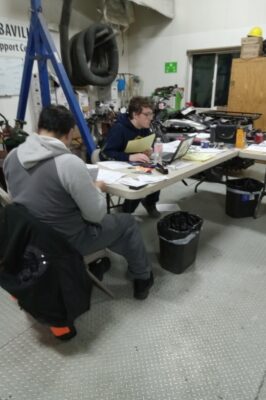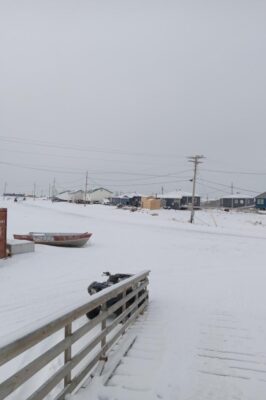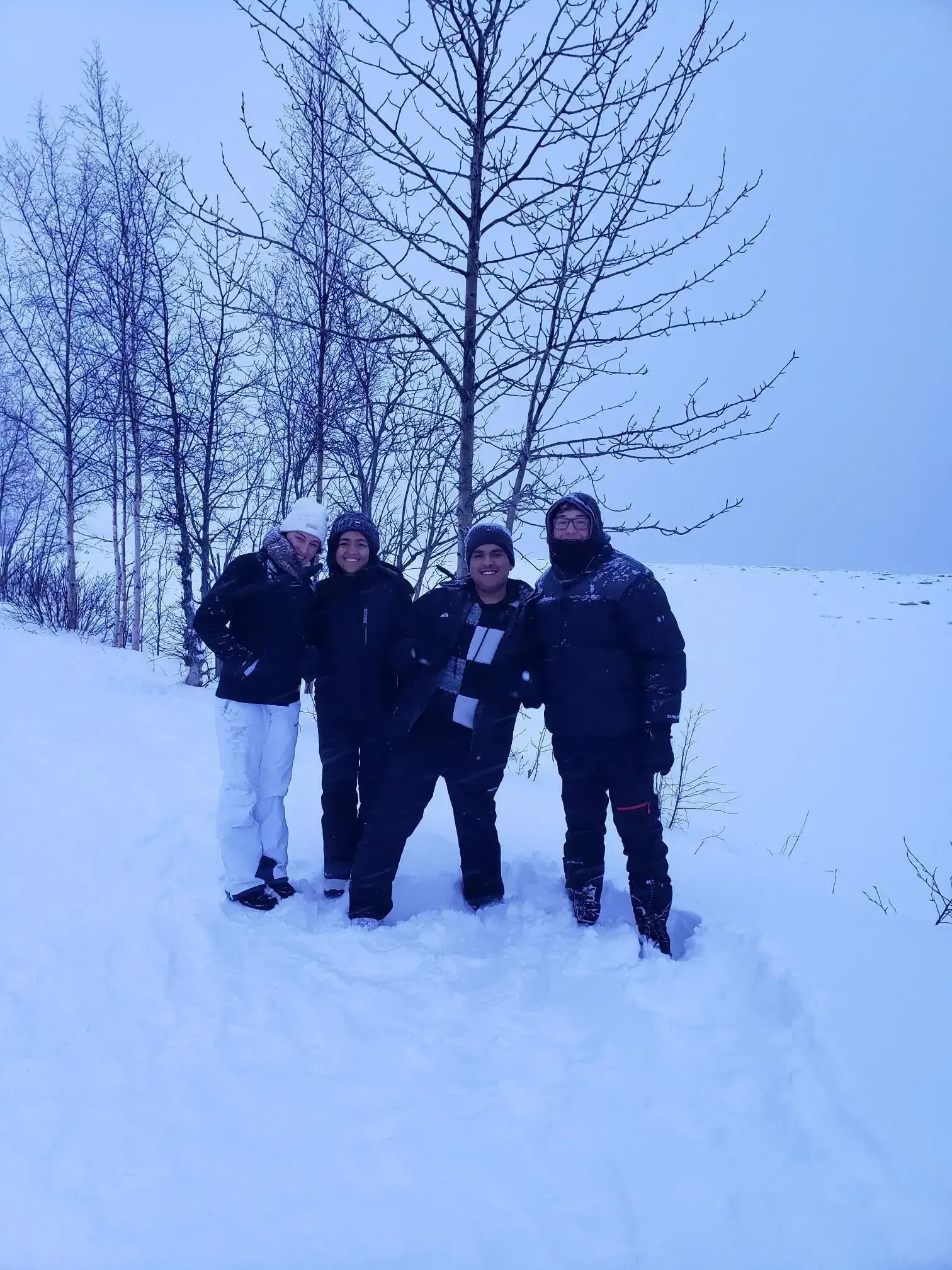
Teams from the Meinders School of Business participated in a volunteer project and learning experience at the edge of the world. Three accounting majors, one business administration major and faculty mentor Robin Walker went to Alaska in early February to help residents in remote parts of the state file their income taxes.
The IRS organizes a nation-wide program called Volunteer Income Tax Assistance (VITA), which offers free filing assistance to those who qualify. In most states, VITA sites operate out of colleges, community centers and libraries with volunteers from the area. (The Meinders School of Business has operated a VITA site during several tax seasons.)

Alaska, as a large predominately rural state, has a shortage of such volunteers. Internet availability is spotty at best in the vast countryside and even cell phone coverage can be limited.
“As you move around the state to these rural areas, you can see why there aren’t many businesses doing tax prep,” Walker said. “It’s a wide-open space, not many buildings or even available resources to construct buildings.”
Alaska has a few other unique characteristics when it comes to taxes. For one thing, eligible residents earn what’s called a Permanent Fund Dividend from the state. The fund was established using the state’s vast oil revenues.
Between the two teams from √€Ã“”∞œÒAV ‚Äî two students with Walker and two others with another supervisor ‚Äî they filed 361 returns and generated $560,071 in refunds for people who need it most.
“They desperately depend on this money. Employment opportunities are limited. Heating fuel alone is so expensive, I’m sure some couldn’t afford it without their refunds,” Walker said.
The has been recruiting volunteers from business schools and other organizations from the continental U.S. to help prepare taxes since the late 1970s. The volunteers fly to Anchorage, participate in a day-long training session at the University of Alaska Anchorage, then are scattered about the state via planes, trains and trucks (and snowmobiles and four wheelers once they get to their destination). For the smaller towns and villages, two student tax preparers are paired with a faculty supervisor.
Despite the harshness of winter, Walker says the tax assistance program intentionally starts early in tax season so that clients can get their refunds before the predatory lenders start making their rounds.
Some towns and villages are difficult to reach by conventional modes of transportation, so getting to their appointed site can be an adventure of its own.

Junior Nick Sayegh has a white-knuckle anecdote about getting to his second town. The crew travelled via truck on a “road” that was essentially a frozen river. The driver had to stop at one point after seeing liquid water to make sure they could safely continue their travel.
Sophomore LucaBella Delor-Gadin recalled landing at their first workstation.
“We took a six-seater plane from Bethel to Quinhagak,” Delor-Gadin said. “We went from a small town to a tiny village. The airport is one little building and the runway doubles as the main road into the village.”
The team made its way to a multi-purpose municipal building. An hour later, they were open for business using foldable plastic tables for desks, sharing the space with maintenance tools, workbenches and a furnace that had difficulty keeping up with the cold.
The teams hauled their accounting equipment and paperwork around in plastic storage bins. They kept paper copies of the returns to take back to Anchorage where they’re reviewed and held for records keeping.
A village liaison is assigned to the teams to serve as a guide and to help with any resource needs. They call the village residents via phone or CB radio and let them know when the VITAs are ready to help. The teams generally work from 9 a.m. to 9 p.m. each day so everyone who needs assistance can get it.
“It was interesting to see how word would spread through the village,” Walker noted. They don’t make appointments, but “they would hear about the less busy times to come. There isn’t much room in these buildings and not much to do while you wait.”
Accommodations offered sparse amenities. The bedding at outposts is usually a sleeping bag on a cot and a microwave. No TV, and even if there was one it likely wouldn’t get any signal. To reach some sites, team members have a pack weight limit on their personal bags so they could stay under the airplane’s cargo allowance. That limit could be 40 or 50 pounds that covers heavy winter clothes, a sleeping bag and food.
Part of the Anchorage training was a brief overview of the life and culture in rural Alaska featuring a checklist and a few pointers on how to survive and thrive in their temporary surroundings. A packing list provided suggestions of what to stock up on at the grocery store for sustenance, as the volunteers are responsible for their own meal prep.
For the students, the personal satisfaction made the long journey worth it. Sayegh said besides the altruistic rush, the trip served as a thrilling learning experience that will look great on his resume.
“I liked seeing how happy people were when they found out they’d be getting unexpected money,” Sayegh said.
Delor-Gadin said she also learned a lot from the experience, especially on how to consult with clients. As a travel buff, she looks forward to taking the trip again in a future tax season.
“It was interesting to help people get to where they want to be. Some people don’t know a lot about taxes, so it was great to be there to help them through it,” she said.
